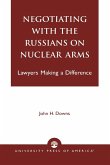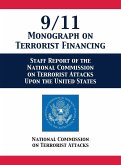It is in the interest of this book to investigate why governments negotiate with separatist terrorists, and why those negotiations succeed or fail. The four cases analyzed in this book include: Sri Lanka and the Liberation Tigers of Tamil Eelam, (1983-2009); Russia and the Chechen Republic, (1994-2009); Israel and the Palestine Liberation Organization, (1993-1994); and Great Britain and the Irish Republican Army, (1985-2009). In this study, four basic questions are addressed: When and why do governments agree to negotiate with separatist terrorists? Is negotiation a viable solution to ending historic ethnic conflicts? Are certain peace agreements and negotiation strategies more successful than others? And why, after having secured a settlement, do tensions erupt and violations occur?
Bitte wählen Sie Ihr Anliegen aus.
Rechnungen
Retourenschein anfordern
Bestellstatus
Storno








